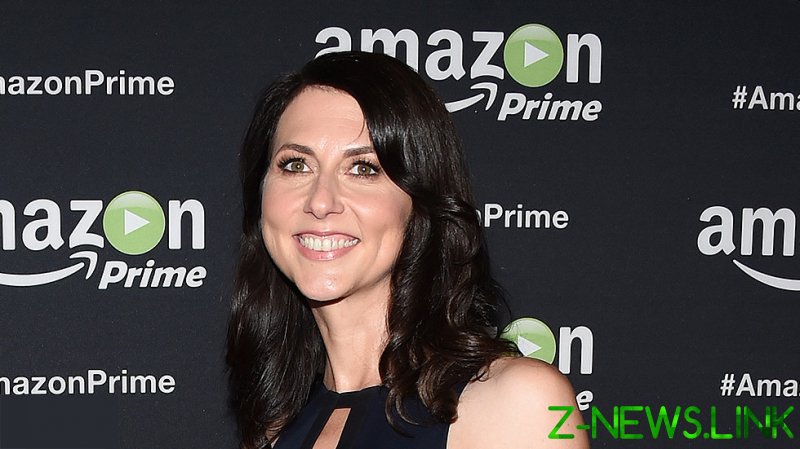
One of Muhammad Ali’s best boasts was, “I’m so fast that last night I turned off the light switch in my hotel room and was in bed before the room was dark,” and that comes to mind every time an Amazon package turns up on my doorstep.
The doorbell rings, I make my way to the front door and open it to find another Amazon box, abandoned like a Christmas orphan on my doormat with no sign of the delivery driver.
They – just like Ali – are too fast for me and are already back in their van tearing up the road en route to their next drop-off. And this mad, incessant dash from hub to home is repeated around the UK, the USA and everywhere else across the globe within reach of Amazon, that giant of all retail giants with a valuation of $1.6 trillion. Probably more by the time you read this.
The sleigh bells ring, ‘Kerching!’.
The money that Amazon generates is simply phenomenal. So vast is the personal wealth of its oddball, bug-eyed creator Jeff Bezos – estimated by Forbes at $487 billion – that even his ex-wife was handed billions enough to be throwing it around like Christmas snow donating to her pet causes.
MacKenzie Scott took $38 billion in Amazon stock as part of the divorce settlement. No wonder there was no public acrimony, and we were instead treated to retch-inducing amicable divorce statements from both sides of the Californian power couple. The lawyer-guided (in)sincerity, the ‘still best friends’ infantilism. The nine-figure financial settlement. Eeeeugh! And we’re meant to think that’s wonderful!
Since then, Scott’s donated close to $6 billion total in 2020, largely to “communities of color,” explained the Washington Post (a paper owned by her ex-husband) as it gushed about her philanthropic act of “redistributing wealth” to minorities. Very generous – but given that her wealth has apparently increased by $29.7 billion since the pandemic began (up a staggering 82.6 percent, as of October), it’s really not much more than loose change to her.
Without meaning to be rude, it’s also not money that Scott, 50, has earned herself through any hard graft. Her gig is writing. But as a published author she could never dream of selling enough books (even on Amazon) to earn that sort of mindblowing moolah. It’s cash she’s squeezed from Bezos who, after 25 years of marriage, decided to trade her in for a younger model, in a settlement that made her the fourth richest woman in the world. Just like that.
And while the bank transfer comes from a J Bezos account, the money originally came from people like you and me. From Amazon customers who shop whenever they like, from wherever they want, and happily pay a Prime premium for supposedly preferential treatment – although this is arguable nowadays – while factories in China churn out billions and billions of dollars worth of tat that they can ship to us at time warp speeds, saving us the dreadful inconvenience of having to get off our sofas and shop in our local town centres.
I’ve ordered things from China in recent weeks that have arrived on my doorstep faster than the Christmas cards I’ve sent to friends via first class Royal Mail have reached their UK destination. They’re that mad quick.
That speed of service and convenience are the reasons why Amazon has also meant the death of places we all used to enjoy visiting: the local toyshop, the bookshop, the camera store. Places where knowledgeable and enthusiastic staff could tell us the difference between mirrorless and DSLR cameras, about the latest Hilary Mantel novel or the type of battery needed in that must-have toy for kids.
Unfortunately, that is no longer the case. Stores like this are disappearing by the day, their staff on the dole. In their place, Amazon has made modern shopping a sad and solitary stay-at-home ordeal of navigating dodgy bot-generated product reviews, poorly-translated instruction manuals and ever-shifting delivery promises.
For its smaller competitors, it has made business untenable. How can anyone compete against Amazon? A company so big, so omnipotent and so convenient that it has generated wealth for its owner and his (ex-)wives on a scale never before seen on this planet.
Here’s a small example of how Amazon operates, courtesy of a recent Wall Street Journal article. A small business began selling camera tripods on the site, and reached $3.5 million in sales, 0.001% of Amazon’s revenue. Amazon then copied the tripods and sold them more cheaply and subsequently banned the tripod company from the site. Bezos is a modern-day robber baron.
And the pandemic? Pah! It’s been brilliant for Amazon’s business. With most storefront retailers legally forced to abide by erratic and seemingly random lockdowns, Amazon has had the entire playing field all to itself. Sales in the second quarter of 2020 were up 40 percent year on year; it’s been making billions off the back of the killer Covid-19 virus fully aided and abetted by the public health officials of the very governments it cheats out of taxation through aggressive, though totally legal, accounting finagling.
Government-led inquiries in the US and the EU often attempt to rein in some of the Amazon excesses and you hear plenty of talk about unfair competition, monopolies and the company’s ‘private label’ copies undermining their rivals, but nothing so far has managed to put the brakes on the money-making capability of Bezos or the property empire into which he ploughs his dosh.
That would mean a quantum shift in the way we are now conditioned to shop. And sadly, that ain’t gonna happen. Oh, sorry, gotta go! There’s the doorbell…
Like this story? Share it with a friend!
The statements, views and opinions expressed in this column are solely those of the author and do not necessarily represent those of RT.
© 2020, paradox. All rights reserved.





